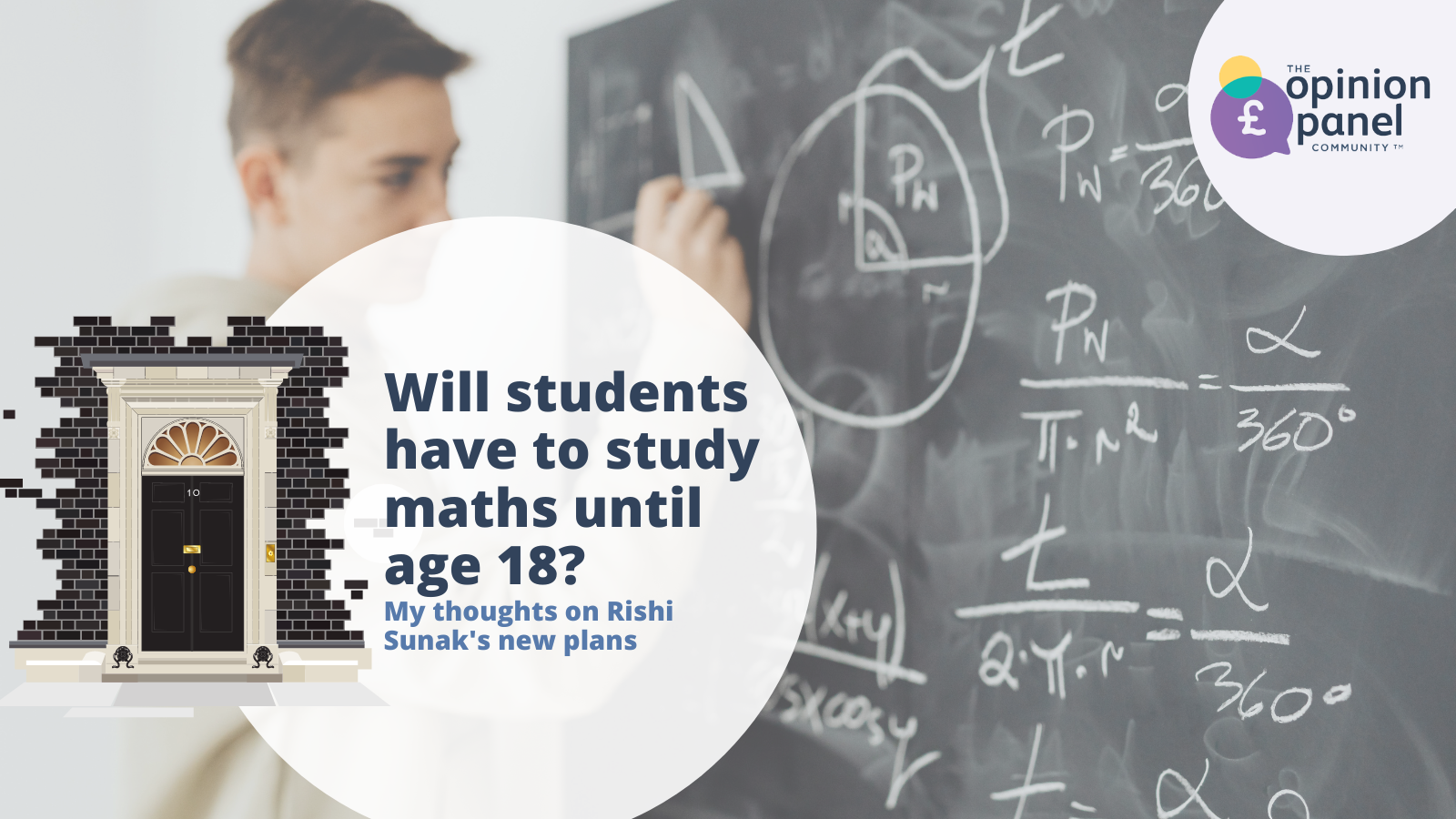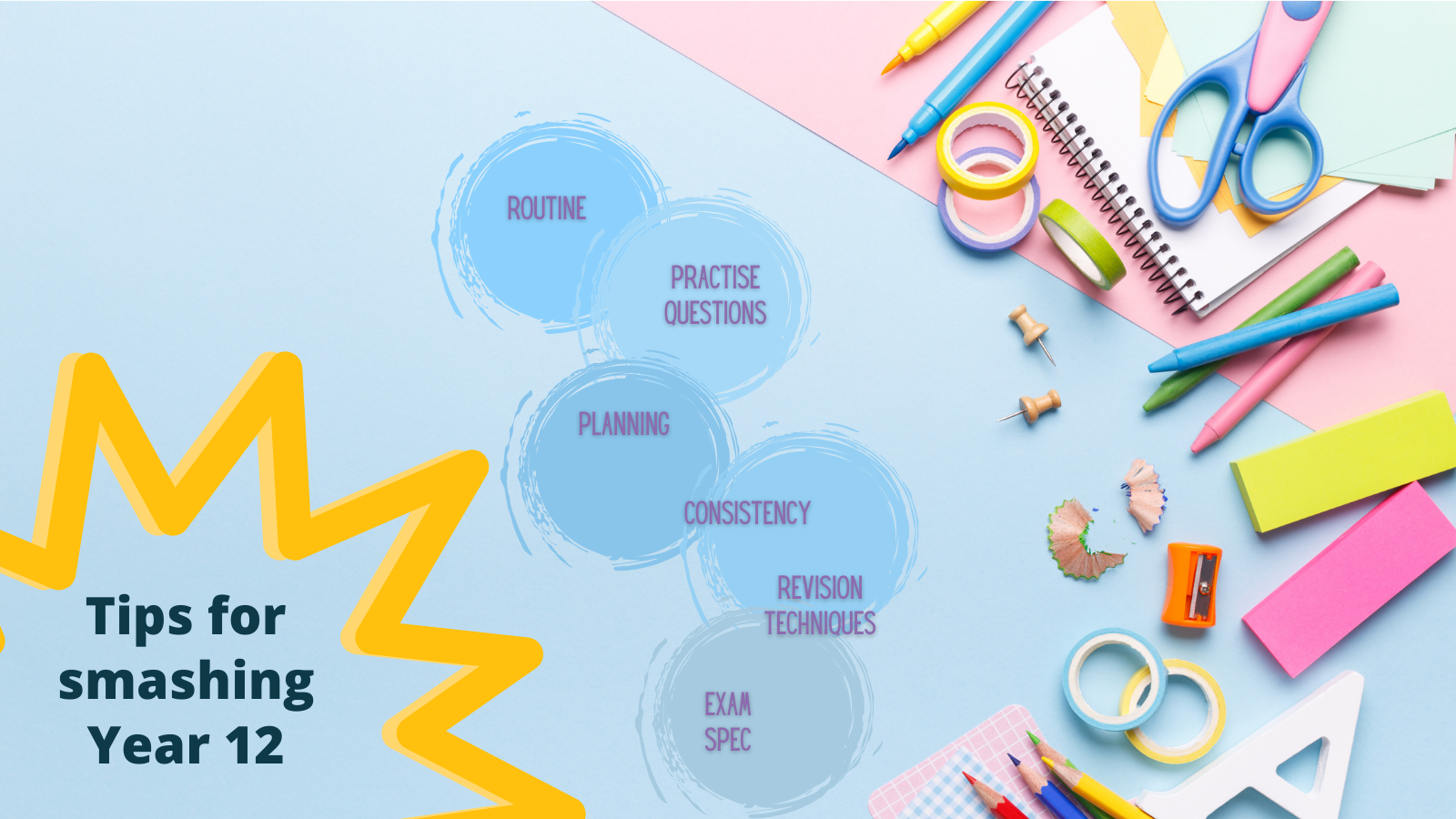
It’s no secret that maths is one (if not the most) polarising subject for students. Some students love it and go on to study maths further at A-level and university. However, I think an overwhelming majority find maths all a bit daunting and somewhat useless (myself included), not to mention math anxiety too.
Rishi Sunak’s big idea
When Rishi Sunak, our current Prime Minister, finally came out of hiding to deliver his big speech on Wednesday, one particular educational aim struck a nerve in a plethora of past and present students all across the UK. Sunak stated that he wanted people to “feel confident” with finances and things like mortgage deals. He also went on to say that “in a world where data is everywhere and statistics underpin every job, letting our children out into that world without those skills is letting our children down.” That is all good and well, but from my own experience maths after a certain level will be utterly unnecessary in a number of jobs.
For example, I plan to go to university to study English later this year. A subject which is ironically rumoured to be eventually ‘phased out’ as it doesn’t maximise earning potential. I don’t think English, or many other jobs won’t need any maths at all, but I believe we really only need basic numeracy to succeed. Even some of the things we learn at GCSE can seem a bit pointless, such as Pythagoras’ theorem, once a brightly highlighted revision card during my GCSEs, which I haven’t looked at since.
Some past students have even joked online about how ‘it’s been another day not needing to use a2+b2=c2’. These are posts which have garnered thousand of likes on platforms such as TikTok. However, this only really applies to people like me who won’t need to know this to do non-STEM related jobs.
So, what are the pros of this plan?
Perhaps the cons are outweighed by Sunak’s statement on wanting to help young people feel more confident about finances. It is becoming increasingly obvious that many young people are not learning the right skills to tackle essential things like paying taxes. We enter the adult world not being taught about taxes, mortgages, loans… and then expected to deal with it all ourselves. I had to embarrassingly ask my parents about taxes, and to be honest, they didn’t explain things all that well
If the extended teaching of maths that Rishi Sunak speaks of is more heavily centred on real issues, then I would be a lot more accepting. Despite this, In my opinion, I think the Prime Minister is ardently set on making A-level maths compulsory, although this hasn’t been said. As we know it, maths at this level is more complex than necessary for the average student. Moreover, the site educationquizzes.com conducted a survey that ended on 18th January 2020, that concluded maths was whichthe least favourite school subject—no surprise there.
Conclusion: what this means for you
Bottom line – if you’re currently under 18 and won’t be for the next couple of years, this will apply to you. The news was only announced recently so keep an eye on any updates. It has been said that nothing will be implemented before the next general election (2025), but that doesn’t mean there won’t be any changes before then. By any means, more education is not an inherently bad thing, but in this case it would be an annoying amount of baggage that gets in the way of students pursuing A-levels more catered to their own career aspirations.
Data from gov.uk stated that in 2021 there were 45,000 science teachers in state secondary schools in England, but a lesser 35,771 maths teachers, demonstrating the need for more people with degrees in maths, so it is argued that these plans may not even come into force, with no capacity to teach them.
Sadly, I can’t help but feel like the Prime Minister’s plans seem to focus on everything but what students truly want, which is the ability to choose. One way we can make a stance against this is to band together and let our voices be heard! Start those petitions, start those debates, and never be afraid to express your opinion; no matter what you think, it will always be more important to hear from real, current students than the leaders of this country who left ‘elite’ schooling decades ago.








I think that having to do some sort of math until you are 18 is a step in the right direction, however i think it should focus not on pure maths like Pythagoras or trig but should focus on life skills or something where you learn how taxes work or how do develop your credit score or how debt works and prepares you for maths related things that you will have to use in the future.
I am a musical theatre student at Uni and I think this is a way of taking the creative arts out of the curriculum. By implementing more english and maths it stream lines students into thinking that there are no other career paths that they can go into, just by the educational board taking out most if not all of the creative arts within primary state schools it limits children’s development and day to day life schools. If they keep on adding more and more stem into the curriculum it wil[...]
Read more
I completely see where Rishi Sunak is coming from- of course it is vital in the world to have at least basic maths skills as it can help you understand things like inflation, interest rates and general use of cash and numbers. It is important in the same way that I believe everyone should be able to read and write. However, that being said, I don’t see the need to continue studies until your are 18 when GCSE maths teaches you all the relevant skills – for example, things like compound [...]
Read more
I study in France, and over here we have a “tronc commun”, a set of core subjects that accompany our “Spécialités” (A-Level equivalents), to which maths is being added next year. As I understand, this will not be to the level of an A-level, simply general skills in Maths. Even as someone who finds the majority of maths relatively useless and dropped it as soon as possible, I can’t deny the importance of maintaining a certain level of numeracy. If the changes the Prime Minister is sug[...]
Read more
I’m a Scottish student currently studying Advanced Higher Maths. It has been a large passion of mine for the past couple of years and I’m all for making it more accessible, so here’s where I stand on this. If the point of this is to try and raise the country’s basic maths skills then I think that’s brilliant, standard arithmetic and some basic algebra can go a long way. Being able to use maths to model a real life situation with an equation that can then be manipulated is an incredibly[...]
Read more
I think…No. When we talk about all young people studying maths to 18, this doesn’t mean everyone will have to take maths A Level.
Instead, it’s about making sure that all young people, whatever path they take after school, have access to high-quality maths education that is suited to their needs. For example, we’re collaborating with the Institute for Apprenticeships and Technical Education to work out how maths can be incorporated in a way that works for apprentices and employers.
I think this would be great as a lot of people just want to drop out after high school. If they keep doing maths till they are an adult, they will be able to handle money and income better. But, they shouldn’t do maths such as algebra and logarithms etc, they should focus on the maths used in life such as handling income and how to pay bills and spend money effectively.
I think… many people in the university don’t have to study maths till they’re 18 because their courses don’t require it.
I think that introducing maths to all under 18s will do more harm than good. The subjects you choose for A levels depend on what your strengths are and a lot of students don’t have the type of brain that allows maths to be easily understood. It is similar to that some people do not have the type of brain in which allows them to analyse text like English students do. Everyone’s brain is wired differently and I think that if you force children to do a subject they dislike and are weak in[...]
Read more
I think people forget that there are many kids out there who are more on the creative side and who’s brains don’t work as mathematically. Yes, maths is important but there are just as many opportunities for people who aren’t great at maths. As an art student, I feel like what I can bring to the table isn’t being supported or valued by my sixth form enough. The amount of kinds who give up on what they want to do because some guy thinks one particular subject is more important than the r[...]
Read more
I think…the debate surrounding the proposal for students to study maths until age 18. While some advocate for the importance of basic numeracy and financial literacy, others question the necessity of advanced mathematics for all students, especially those pursuing non-stem careers. This highlights the tension between ensuring essential skills and allowing students to pursue their interests and career paths.
I think… that as a young person that has not been able to pass there maths GCSE I think that they should just do functional maths as it can be very overwhelming knowing that you still have to get it even though you may of tried like 4 times and still haven’t got it whilst doing the subject that you love doing.
It is important for students to study maths until age 18 as it provides them with critical thinking skills, problem-solving abilities, and a strong foundation in logical reasoning. Mathematics is a subject that permeates various fields and industries, and having a solid understanding of it opens doors to numerous career opportunities. Moreover, mathematics trains the brain to think analytically and systematically, which can be applied to real-life scenarios beyond the realm of mathemat[...]
Read more
I don’t think maths is necessary for A level students unless they need if for a course/job. Some students may struggle especially with already having 3 other subjects.
I do not think all students have to do maths until the age of 18. One of the main reasons for this is not all career paths require advanced mathematics. For students interested in pursuing fields like art, music, literature, or certain vocational trades, extensive knowledge of mathematics may not be directly applicable to their chosen professions. Forcing them to study math until 18 could be seen as a waste of their time and resources.Another reason might be that forcing students to st[...]
Read more
It is good math will be implemented as there is a need for smarter people but the math should be based on life situations to help out rather than what is being taught at GCSE. Though it will be hated by many kids if it will be an extension of the GCSEs, that’s the first thing that comes up when you think about it.
I think that Maths is an important subject to study to an extent. Yet the way maths is taught at higher education to age of 18 goes far beyond what is necessary to know … Maths is important to learn in these years as it does help with intelligence i believe
It’s uncertain whether students will need to study math until age 18. The idea is being considered, but it’s not definite yet. Some believe it could be beneficial for a deeper understanding of subjects and career opportunities, while others might have different views. Personally, I’m kind of okay with the idea of studying math till I’m 18.
I am an architect, and I needed mathematics for the first year. Even though we don’t use maths regularly, there is mathematics in everything we do. I am seeing kids and students from other department struggles with basic math. Even when asked, “how many sides are in an isosceles triangle”. Every student should understand and learn to calculate whatever they study or do. Mathematics should be taught until 18 years old. I am not suggesting the idea of teaching the kids integration and di[...]
Read more
I believe that the study of mathematics helps students to develop mathematical thinking, reasoning and analytical skills, as well as the ability to solve practical problems. These skills are important in both academic and professional careers. From primary to secondary school, students are gradually exposed to and learn different levels of mathematical content, ranging from basic arithmetic and algebra to geometry and probability statistics, among others.
I thiI believe that whether or not maths has to be studied before the age of 18 depends on the specific education system and individual learning choices. Some students may choose to complete their studies earlier or meet academic requirements through alternative courses, which may affect their timetable for learning mathsnk…
I did A level Mathematics and it was the right choice for me since i enjoyed mathematics since i was a kid and i wanted to study biomedical engineering therefore i needed mathematics but to make it compulsory for everyone is not a great idea. maths has to be compulsory till gcses because everyone needs to have a strong foundation in mathematics but AL maths is no small feat, it is way more advanced than gcses and for many students whose strong suits are creative subjects and intend to [...]
Read more
I m a sixth form student in united kingdom and i have heard many students complain about the fact that this is a possibility however i personally would love for this to happen as its just another opportunity to know more about maths and daily life. i do maths in sixth form so my opinion might be biased however it would seem that majority of students don’t wanna do it and i respect their opinions. i think it should be optional and should count towards ucas terrif points.
This is mostly a tactic to boost the amount of people in jobs that “benefit the economy” more like bankers or accountants in my opinion by reducing the amount of people who want to go to other jobs such as more creative ones like arts and literature by pushing people into mathematics to begin molding them into a functional cog of the capitalistic society.
I am currently a student who is just about to go into there first year of university in which my course contains a high quantity of mathematics. I have only studied maths up till GCSE level in which i felt gave me a good level of understanding of the required maths I need in every day life. People who want to continue to learn and widen there knowledge about maths have the option after GCSEs to take maths as one of there a-level subjects. I feel it wouldn’t be beneficial to force stude[...]
Read more